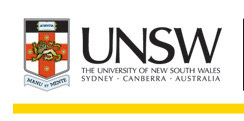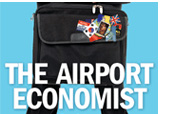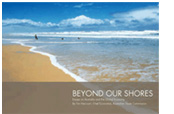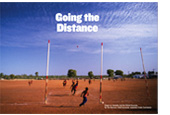From Russia with love
By Tim Harcourt*
Poke a Russian bear with a stick and
he will retaliate. That’s the lesson facing Australian exporters today. When
Australia announced they were joining the USA and Europe in placing trade
sanctions on Russia in response to Malaysian Airlines MH 17 being shot down in
Ukraine, it could do so realising there wasn’t much trade to talk about.
Australian- Russia trade is only worth $1.8 billion and as our 28th
largest export destination and 30th largest import source. In fact
Russia’s main export destinations are – wait for it – the Netherlands, Turkey
and the Ukraine. It imports mostly from China (like everyone else), Germany and
the USA. Australia only accounts for 0.3 per cent of Russian imports as Russia’s
44th largest import source and we are Russia’s 99th
largest export destination (barely registering on the trade accounts).
But now Russia’s counter sanctions
could hurt agricultural exports particularly in wheat, dairy, beef and kangaroo
meat (Russia is our main export market for kangaroo meat so Skippy and the
animal rights movement may applaud Putin’s actions to ban Australian exports).
So how will the trade sanctions play
out? Russia’s actions could hurt Russia most of all. A government putting on tariffs
or other forms of trade protection is a like a government shooting its own
people during peace time. Or as the legendary Cambridge economist Joan Robinson
used to say a trade bans are like “putting rocks in your own harbour.” Putin
might well be bringing food shortages back to Russia like the bad old days of
the Soviet Union and Tsarist regimes – something the poor Russian populace has
been used to historically. For a
democracy it would be unbearable but at an 87 per cent approval rating Putin
won’t worry about that. As he said at
the APEC meeting in Sydney in 2007 meeting when John Howard allowed then
Opposition leader Kevin Rudd to speak: “How nice to allow your Leader of the
Opposition to speak, I would do so also, except I don’t have one.”
Will trade sanctions work? In
economic history the record is patchy. The economic evidence is mixed when
looking at trade sanctions against South Africa, Southern Rhodesia (now
Zimbabwe), Cuba, Fiji and now recently Myanmar (Burma). The evidence shows that
the economic sanctions against South Africa were more ‘psychologically hurtful’
to the apartheid regime than economically damaging, although there is evidence
that disinvestment by major institutions like Chase and Barclays had more of an
impact than trade sanctions. As in the case of Cuba and Southern Rhodesia,
trade sanctions did not have as much impact as restrictions to foreign
investment and in any case the economic distortions in the domestic economy
(like South Africa’s apartheid labour market distortions) were as damaging as
external sanctions. In any case, ironically it was the collapse of the old
Soviet Union was the key factor in enabling the white minority government to
start negotiating with Nelson Mandela and the African National Congress, making
South Africa a ‘special case’ in terms of effectiveness of sanctions.
In a well-functioning economy
sanctions can bite quickly, but as in South Africa (due to apartheid) and Myanmar
(due to having a ludicrous sized army for a poor country 300,000 men under arms,
almost the population of Canberra, despite no external threat) and Russia they
can have mixed effects. Russia has an oligopolistic, or we could say
“oligarch-listic”, anti-competitive economy so the oligarchs will choose to
absorb the sanctions or distort the effects. The west has tried to target
Russian funds abroad (in the UAE and Chelsea) as that’s where the Russian
oligarchs keep their capital but that’s going to be a difficult target.
This MH 17 Russia – Ukraine crisis
has a long way to go into terms of geo-politics and trade is likely to be just
one weapon of choice in the skirmish.
Russia Fact Facts:
Australian Exports to Russia: $736
million
Australian Imports from Russia $1057
million
Main Australian exports – wheat,
beef, butter, kangaroo meat
Main Australian imports – crude
petroleum, fertilizer, vodka
Australian investment in Russia –
$2352 million
Russian Investment in Australia $4844
million
Number of Australian companies
exporting to Russia – 377
*Tim Harcourt is the JW
Nevile Fellow in Economics, UNSW Business School in Sydney and author of The
Airport Economist. www.theairporteconomist.com
He is formerly Chief
Economist of the Australian Trade Commission and a regular visitor to Russia.













No Comments so far ↓
Comments are closed.